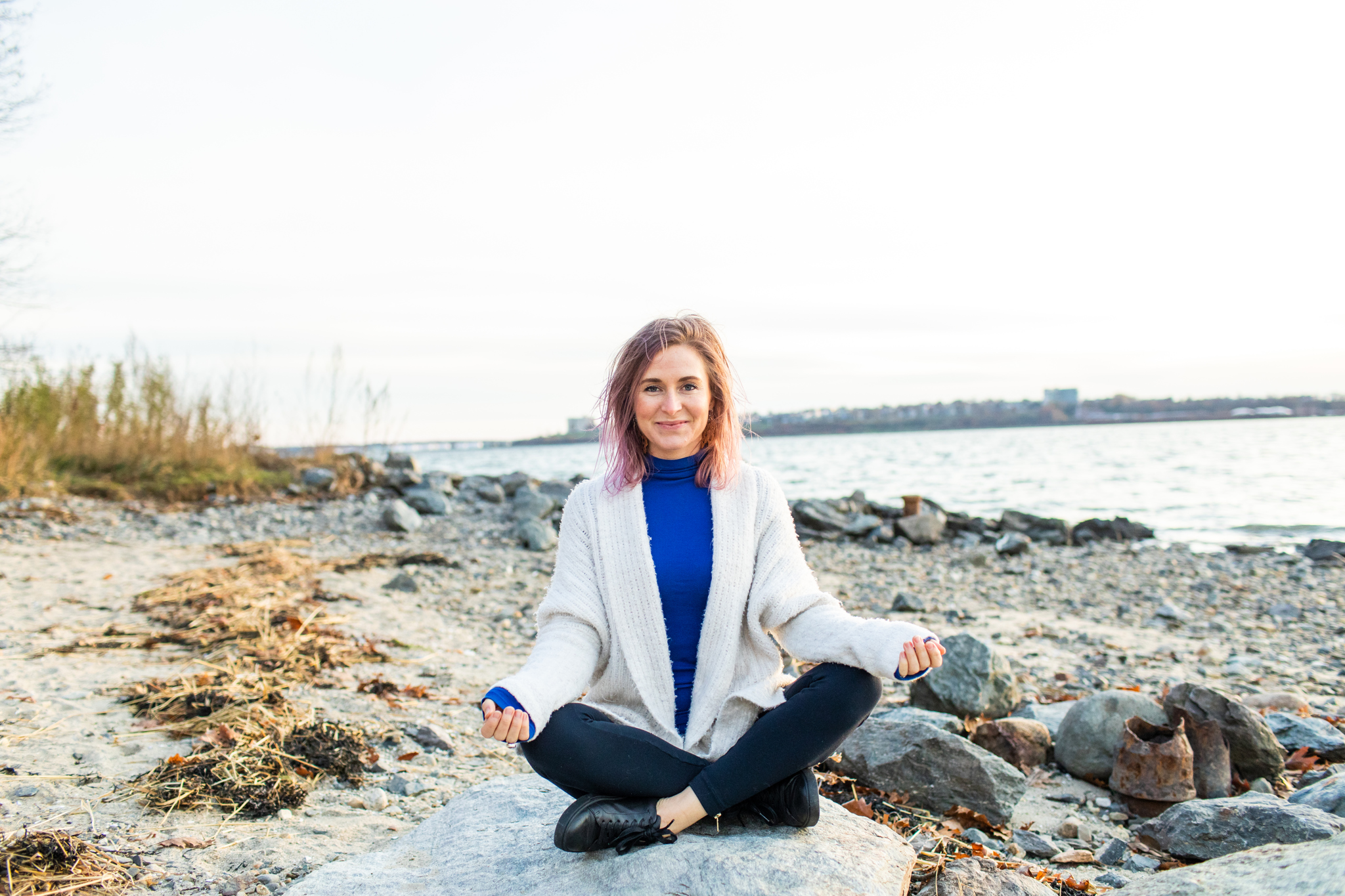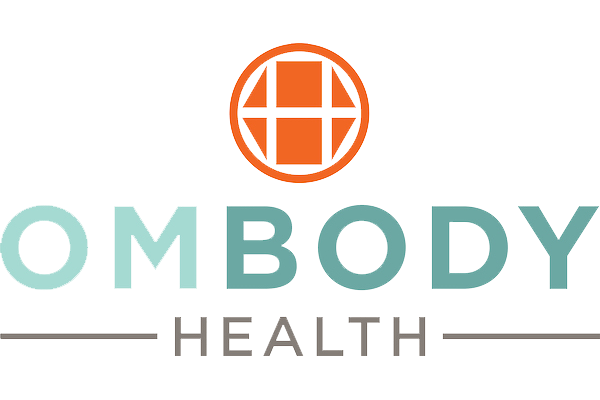
It’s a heavy time, be gentle and expect to feel a lot. I hope these words and practices nurture you, as they have me.
1. Befriend Uncertainty
Since the dawn of time, life has been unstable. Just think about it for a second: we live on a planet that is spinning and rotating around a giant burning ball of fire, both of which are floating around in something called a galaxy, in something called the Universe. WTF?!
Even the world as we see it is not so. There are so many illusions that help us feel safe and certain, but the reality is that even the seemingly solid ground we’re standing on isn’t really solid, and our bodies, not really separate from our surroundings (as both science and religion have discovered independently of each other), but rather all woven together in an ever-changing, collective fabric.
We now know that the old Newtonian worldview, which asserted that everything we perceive was made up of solid and permanent substances called matter, thus separate from the world around it and on some level unchanging, is flawed. The quantum worldview shows us that even photons, the smallest way that humans know to break down an atom, aren’t solid particles at all, but like clouds.
What appears certain, stable, solid, unchanging is in fact in constant connection, flow and flux—interacting and merging, arising and passing away—with everything around it. The same is true with our perception of solidity on a macro-level, the perception that our job, relationship, economy, life is stable, when in any moment any one or all of these things could crumble beneath us.
The truth is, we cannot prescribe stability to any complex system – not nature, not the economy, not public health, not the mystery of life. Sometimes these systems appear or feel stable and secure for a percentage of the population, but they’re not. The mere fact that we’re alive means that we are subject to the forces of chaos, disorder, and change. The harsh truth is that the ground beneath us is and always will be wobbly and unpredictable.
When we were young, many of us were taught about the importance of building a strong external scaffolding to lean on—getting a good job with stable income, finding a reliable partner, having a solid roof over our head. My teachers did not teach me about the importance of building a strong internal scaffolding; how to lean on myself in the face of uncertainty and change. I learned this much later through the practice of yoga, and will be re-learning it forever.
Leaning on the illusion of stability can only provide us with a temporary sense of comfort and ease, until something falls away. Many people I observe, I’ll speak for the developed world, are lacking connection with their own inner resilience and strength, constantly looking outside of themselves to the economy, their job, or their partner, to feel safe and secure.
What if instead we learned to reinforce ourselves from the inside out, not the outside in? And to lean into and find comfort in the intuitive inclining of uncertainty that is always deep down for all of us, just heightened in moments like this.
What if uncertainty became a source of inspiration, meaning and hope in our lives? With uncertainty comes possibility; the possibility that life could become more meaningful, that we could feel more connected and resilient.
You know those times in life where you feel like you’ve hit rock bottom? Where things just don’t feel like they could get any worse? We’ve all felt that panicky feeling when something or someone falls away that we thought we could count on; many are probably experiencing it right now.
Well, as most of us know through experience, sometimes the tower needs to come crashing down before it can be built anew. Is this uncomfortable, very, hard, yes, but who said that life is supposed to be comfortable and easy all the time? What if in these moments we could remember that in life things are supposed to arise and pass away, that this is in fact the norm on the most basic level. What if we’re going through something collectively that we actually need to go through in order to come together in new ways?
The truth is, I have no idea, but befriending the uncertainty of it all, not making it wrong, and leaning on that which I do have control over—my wellbeing, my mindset, how I spend my time, my relationship with myself—is helpful.
2. Befriend Negative Thinking
It is important to note that leaning into uncertainty does not come without natural human responses like fear, panic, and negative thinking. When our ground falls out from under us, it’s human to fall into protection and survival-mode at first, which is all negative thinking really is.
Most of us have been exposed at some point or another to the conditioning that negative thinking is “bad” and positive thinking is “good”. The truth is, neither is intrinsically good nor bad. Yes, one may feel better than the other, but just because it feels good doesn’t make it right. There are circumstances when positive thinking doesn’t result in right action, when we ignore the instincts of our protective (negative) mind and do the wrong thing.
Negative thinking is our biological response to external threats—e.g., a pandemic and everything that could possibly come along with that. In times like these, our minds reel with what we (or others) could have done in the past to prevent this, or what might go wrong in the future as a result.
Negative thinking creates a stress response in the body; our bodies way of telling us to take action. Over the past week, I’ve felt my heart thump a little harder, my hands shake a bit more, I’ve felt sick to my stomach, worried, sad, anxious, afraid, I’ve cried, I’ve been in my head and more distracted than usual. Yes, it’s felt uncomfortable. And yes, it’s normal, it’s instinctual, to feel this way right now.
Not only have I been feeling my own fear and worry, grappling with my own “what ifs”, but I’ve been feeling into that of the collective. There is dis-ease in the air right now. And remember from Befriend Uncertainty above that we are not separate, we can feel each other’s energy, we can feel each other’s pain, we can also feel each other’s joy; one of the beautiful and magical things about being alive (plants and animals can do this too).
It is so important that we hold space for ourselves and others to grieve right now, to feel what we’re feeling, and to use the negative mind to support us to take right action—this does not necessarily mean hoarding toilet paper or food—but also that we do not get too wrapped up in thinking that we become paralyzed by fear.
There is a fine line between feeling fear and being guided by it. We know we’re being guided by fear when negative thinking has become unproductive—when fear-based thoughts have become repetitive, draining, stifling or frantic.
When we find ourselves ruminating, we can actively cultivate the positive mind by asking ourselves better questions, like: As my normal creature comforts and daily routines fall away, how could things unfold better than before? What are some benefits of staying home for a while? What am I grateful for? What is something positive that I can do to feel happy, make someone else happy, or move my vision for the future forward?
Taking action—whether it be journaling answers to the above questions or cleaning the closet—is a great way to pull ourselves out of the negative mind. Neutralizing the mind is another a great way to shift out of unproductive negative thinking. A neutral mind is an open mind. Our minds are neutral when we are in our bodies, with our breath, observing things as they are, not as we want or don’t want them to be. Meditation, conscious breathing and embodiment are the best tools I know to neutralize the mind. Click here for free classes.
3. Receive the Void
As the seemingly solid ground of “normalcy” is pulled out from under us, many are being presented with the harsh reality that life as we know it is going to shift for a bit. As events get cancelled, workplaces and schools close down, travel is restricted, and business as usual becomes impossible for many (myself included), we’re being presented with the gift of space in our schedules that we don’t usually have.
What so many of us have been craving has just been handed to us on a not-so-silver platter. Our busy, outward facing, at times hectic lives are shifting to be more internal, introspective, quiet, and still. Where we would normally commute to work, take the kids to school, go to that appointment or event, go to the gym, there is now a void, space to choose something new.
For many people, much of that space has already been filled with something else – ruminating on the what ifs?, scrolling news feeds, working, taking care of the kids, reading articles, watching TV, tidying up…This is what happens if we’re not careful. This tendency to unconsciously fill the void is why feeling over-extended has become the norm for so many people.
The way I see it, we can react to the void with fear and worry, resist it by filling it with just anything, or we can really receive this opportunity to recharge and make time for what matters to us.
Sometimes our plan gets rerouted – that trip or event gets cancelled, business as usual gets put on pause, we lose a client or leave a job – and we are presented with a void. If we believe on some level that emptiness is bad – we feel lazy when we do nothing, we feel stupid when we don’t have the answer, we feel anxious when we have unstructured time, we feel lonely when we’re alone – then the tendency is to go fill the void by keeping busy or finding a distraction that breaks the silence.
I believe that doing so is an attempt to distract ourselves from the discomfort of uncertainty that I wrote about in the first section. What if instead we used the space as an opportunity to rethink how we spend our time?
Here are a few simple ways to receive the void and use the space strengthen your inner scaffolding:
- Lay down and simply rest
- Learn a new breathing technique (Click here for guidance)
- Read something thought-provoking (I highly recommend Brain Pickings – an inventory of the meaningful life)
- Meditate (Click here for guidance)
- Create something
- Take a slow, tech free walk
About the Author
 Allie Andrews helps busy people slow down and create space so they can live a life that feels more aligned with their inner wisdom and purpose. Her teaching and coaching primarily focus on ritualizing self-care and Being through the lens of yoga, mindfulness, embodiment and spirituality. Learn more about Allie.
Allie Andrews helps busy people slow down and create space so they can live a life that feels more aligned with their inner wisdom and purpose. Her teaching and coaching primarily focus on ritualizing self-care and Being through the lens of yoga, mindfulness, embodiment and spirituality. Learn more about Allie.

